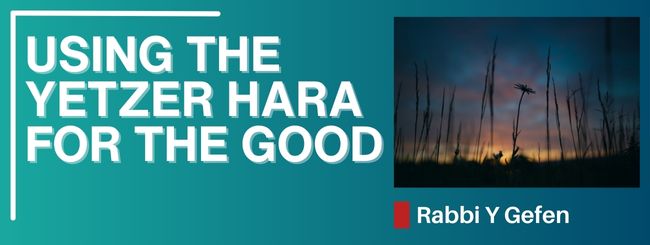בס”ד
Vayishlach (Genesis 32:4-36:43 )
Upon his return to the land of Israel, Jacob sends a peace-making message to his hostile brother, Esau. He begins the message saying, “I lived with Lavan and have lingered here until now.” (1) The Sages elaborate on Jacob’s words, “I lived with Lavan and nevertheless I kept the 613 mitzvot and I did not learn from his evil ways.” (2) The commentaries ask, everything else that Jacob says to Esau is very conciliatory, but this message seems quite antagonistic – how does it fit in with everything else that Yaakov said?
The Chofetz Chaim answers by interpreting the words of the Sages in a novel fashion; when Jacob said that he kept the mitzvot but did not learn from Lavan’s evil ways he was criticizing himself. He argued that Esau had nothing to fear from him because, although he had kept mitzvot, he did not keep them with the same zeal with which Lavan performed his evil acts. When he said that he did not learn from Lavan’s ways, he meant that he did not push himself in his good deeds to the same degree that Lavan did in his evil deeds.
We learn from here that our performance of good deeds is judged in comparison to that of unrighteous people in committing their sins. This concept can help explain another difficult statement of the Sages. When Bilaam(3) set off to curse the Jewish people the Torah tells us that he got up (vayakam) early in the morning. The Medrash Tanchuma says that on seeing this, G-d exclaimed, “Evil man! Abraham their father already superseded you’ as it says [in the story of the Akeida], “Vayashkem baboker.” (4) The words ‘vayakam‘ and ‘vayashkem‘ both mean getting up from sleep, however ‘vayashkem‘ implies getting up even earlier than ‘vayakam‘, thus God was telling Bilaam that Abraham arose earlier in the morning on the way to the Akeida [the binding of Isaac] than Bilaam did on the way to cursing the Jewish people.
What is the significance of this Medrash? Rav Chanoch Harris(5) explains that Bilaam was trying to portray the Jewish people in a negative light by showing that he would act with greater eagerness in his evil than they did in their Avodas Hashem (Divine Service). However, G-d told him that the father of the Jewish people, Abraham already demonstrated greater eagerness in doing G-d’s will than Bilaam did in contradicting it. Consequently, Avraham’s descendants inherited his characteristic of zeal and possessed enough merit to withstand’s Bilaam’s efforts.
In the Shema, we say that we must love Hashem with all our hearts.(6) The Gemara darshans from this passuk that we should love G-d with both our inclinations – our yetzer hatov and our yetzer hara.(7) One way of utilizing the power of the yetzer hara is to observe our zealousness in following its temptations and try to apply that to our yetzer hatov.
This lesson applies in a number of situations. One example occurs with regard to people who devote untold hours to try to satisfy their desire for money and honor. They will often endure sleepless nights in order to earn more money – what about doing the same with regards to our efforts in the spiritual realm? And do invest as much energy into our relationships with our spouse and children? We too can look into our own lives and find areas in which we feel more excitement and zeal than in Avodas Hashem, whether it be food, work, sport, or something else. We need to try to internalize what we already know – that following the Torah provides far more satisfaction than anything else – then we can begin to ‘learn from the evil ways of Lavan and his ilk.’
By Rabbi Yehonasan Gefen
1. Vayishlach, 32:5.
2. Rashi, ibid.
3. Who interestingly is intrinsically connected with Lavan: The Targum Yonasan (Bamidbar, 22:5) says that they were in fact the same person!
4. Balak, 22:21 with Rashi.
5. Senior Rabbi for Aish HaTorah, New York.
6. Vaeschanan, 6:5.
7. Brachos, 54a.
WEEKLY TORAH PORTION,
The Guiding Light
by Rabbi Yehonasan Gefen
© Copyright, all rights reserved. If you enjoyed this article, we encourage you to distribute it further.
Our blogs may contain text/quotes/references/links that include copyright material of Mechon-Mamre.org, Aish.com, Sefaria.org, Chabad.org, and/or AskNoah.org, which we use in accordance with their policies.
